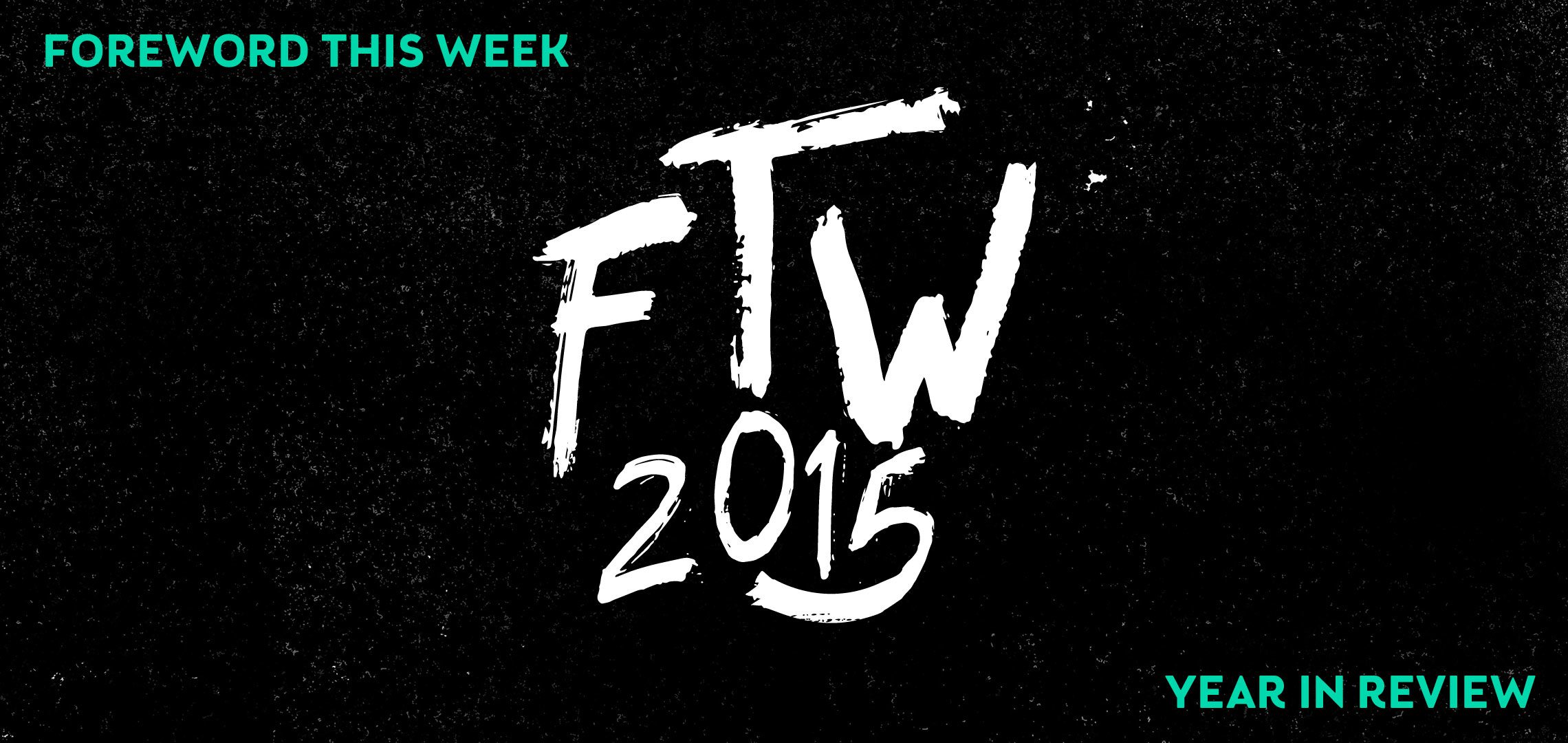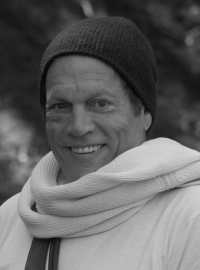FTW 2015: Best of Foreword This Week ... This Year

Say what you will about 2015, there was no shortage of interesting news. At Foreword This Week, we attempted to help you make sense of it all through the words of expert authors who actually know what they’re talking about. We know. It’s a strange way of covering the news—interviewing people who’ve studied the issues. Maybe it’ll catch on, maybe not. Below, take a look at a sample from the first six months of 2015. We’ll do the rest next week. Happy holidays to all!
First, the News



The Cure for Ignorance About Islam: Executive Editor Howard Lovy on learning about other traditions through careful, sometimes painful, interactions with their adherents.
Understanding Islam: Eight books we’ve reviewed that are useful for understanding the nuances of a very diverse world tradition.
Reviewers’ Choice Awards: Our reviewers were asked to name a favorite title from all of the books they’d reviewed in 2015. These are their answers: the sixteen books they loved reading most.
Winter Religion Titles: From our Winter Issue, a varied gathering of books on religious topics, from Christian life in Japan to one former bartender’s personal spiritual revival.
Featured Reviews of the Week
Creating a Beautiful Mess: Ten Essential Play Experiences for a Joyous Childhood by Ann Gadzikowski. “This must-read teaches parents how to embrace self-directed play as a joyous necessity for children.” Reviewed by Laura Mahon.
A Crowdfunder’s Strategy Guide by Jamey Stegmaier. “A crowdfunding expert shares his secrets in this breezy book full of words of wisdom.” Reviewed by Barry Silverstein.
The People Make the Peace by Karin Aguilar-San Juan and Frank Joyce. “Full of well-written, thoughtful, carefully researched essays, this book is a fascinating and thought-provoking look at the Vietnam antiwar movement.” Reviewed by Nancy Walker.
The Annihilation of Nature: Human Extinction of Birds and Mammals by Gerardo Ceballos, Anne Ehrlich, and Paul Ehrlich. “Blends words and pictures in a moving account of this sixth mass extinction.” Reviewed by Jeff Fleischer.
The Feminist Utopia Project by Alexandra Brodsky and Rachel Kauder Nalebuff. “This inspiring and thoughtful anthology imagines a world where women’s bodies, minds, and beliefs are undoubtedly respected.” Reviewed by Amanda McCorquodale.
North Korea’s Quiet Capitalist Revolution

“People will believe just about anything about North Korea. Just look at some of the stories that did the rounds in the past few months: Kim Jong Un has been deposed in a coup; Kim Jong Un has an uncontrollable cheese addiction(!). One of the most famous stories about North Korea—that state propaganda had Kim Jong Il down as a golfer who could shoot holes-in-one virtually at will—is complete nonsense.”
— Daniel Tudor, author of North Korea Confidential
Edward Snowden: Beyond ‘Hero’ or ‘Traitor’

“The importance of the Snowden affair cannot be boiled down to the hero/traitor dichotomy prevalent in reactions to what he did. The events precipitated by one man now transcend this individual, which requires getting beyond simplistic narratives in order to see the bigger picture. … In five years, Edward Snowden will be even more firmly ensconced in American history as a lightning rod for our democracy’s permanent deliberations about power, technology, secrecy, and the rule of law.”
— David P. Fidler, editor of The Snowden Reader
And the Crowd Goes Ingalls Wilder

“We knew that the Wilder name would sell a lot of books, but we didn’t anticipate this level of interest in such a scholarly tome. Our research showed that other annotated works similar to Pioneer Girl: The Annotated Autobiography topped out at around 30,000 books in the first few years after their publication. At the beginning of March, less than four months after the initial release of Pioneer Girl, we’ll have 75,000 copies in print, and we have not yet seen an end to demand for the book.”
— Nancy Tystad Koupal, director of the South Dakota State Historical Society Press
Indie Author Survives Everest … and Hollywood

“The tragic Everest ‘big story’ is the confluence of all the individual stories. So, the real story is what pervades through all of them. The real story is why climbers in the same situation had different outcomes. Some lived. Some died. The real story is about individuality. Each of us brought who we are—and all of our individual differences—along with us to Everest. At noon, each of us had to make a decision about what to do next.”
—Lou Kasischke, author of After the Wind: The 1996 Mount Everest Tragedy, One Survivor’s Story
Cuban Sci-Fi: Viva La Dystopia

“Cuba is a utopia gone sour. (Don’t all of us live in something like that?) Science fiction there is more than a hundred years old, meaning it starts before Fidel Castro dreamed up a dystopian future in the Sierra Maestra in 1958. But the crop of SF writers active under Communism is particularly intriguing; they write about alternative realities with the full knowledge that they live in one of them.”
— Ilan Stavans, Publisher of Restless Books
Civil Rights to Gay Rights: Right Side of History

“While marriage equality isn’t the last issue to be resolved, it certainly is the critical symbol for LGBTQI people when it comes to having equal human rights, equal access to legal protection, and nonnegotiable parity. The issue has built on the foundations of earlier advances so, in this sense, it is an heir. But it is a potent heir, which will continue the progress of according all people human dignity.”
— Adrian Brooks, author of The Right Side of History: 100 Years of LGBTQI Activism
